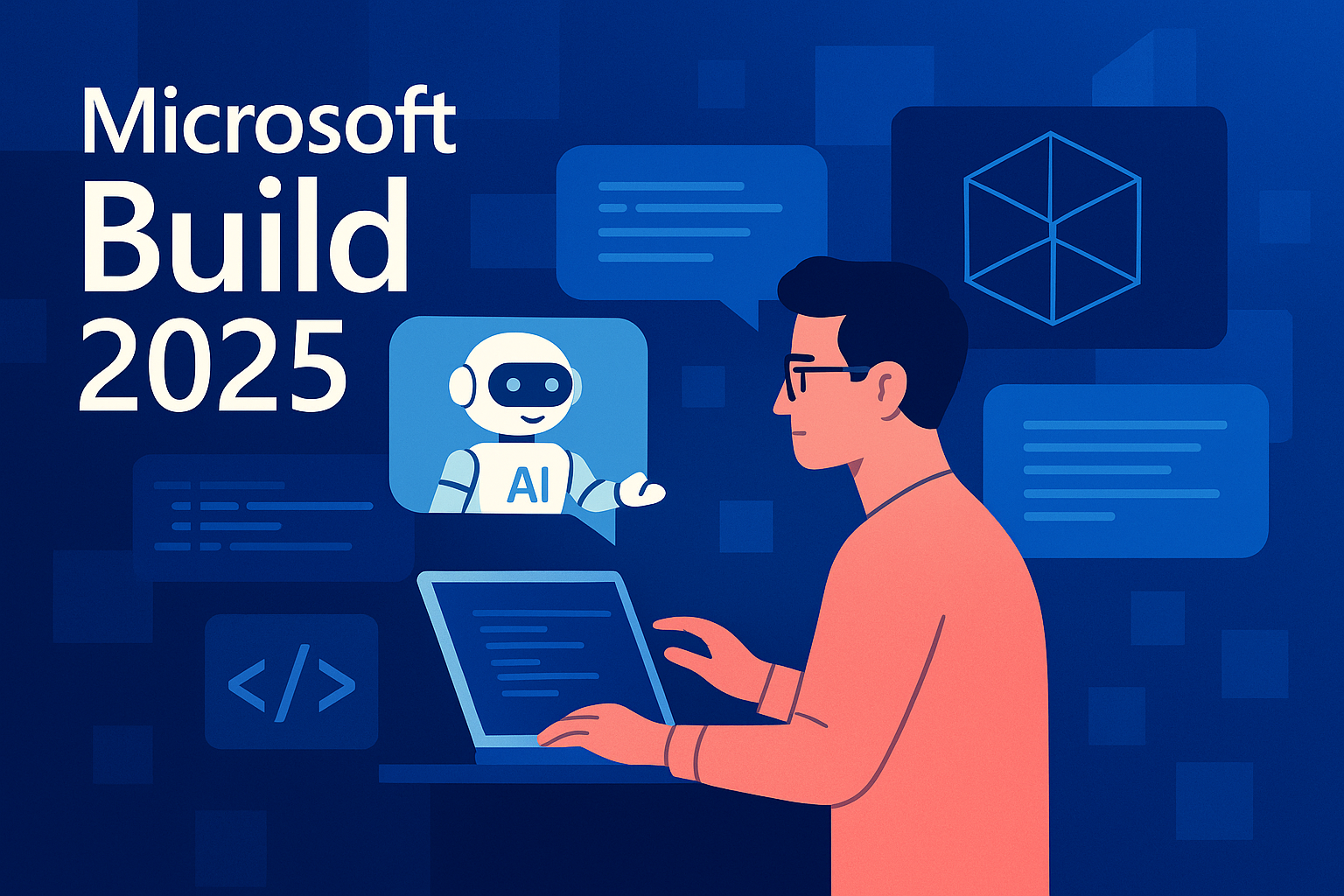
Microsoft Build 2025: Welcome to the Age of Agents
As every year, Microsoft Build took place once again in the city of Seattle, and it brought plenty to talk about. Unlike previous years, I believe this time the announcements made quite a splash, and without a doubt, it confirms the speculation that 2025 will be the year of agents.
Let’s take a look at the most important announcements and updates:
GitHub Copilot: Another Member of Your Development Team
What??? Yes, you read that right. From now on, when you have an issue or task in your repository, you’ll be able to assign it to trusty Copilot, who will take care of the task, make a pull request (PR), and document everything necessary. It will also monitor possible changes and adjustments you request. This is bound to stir up debate. Some will see it as a path to more agile and efficient development, while others may see it as reducing the need for human developers. What do you think?
Copilot Chat for Visual Studio Code Goes Open Source
In recent years, there’s been a noticeable trend toward migrating everything to Open Source. With a few exceptions—like OpenAI’s models—most major frameworks are available as open-source, including widely-used and economically significant platforms like Bitcoin. I think making Copilot integration open-source is an interesting move—it could give it an edge over competitors like Cursor. Eventually, if it works, they’ll all be open source.
Custom Agents with Copilot Tuning
It’s now possible to create multi-agent flows with agents trained specifically for your organization or project. Multi-agent? Yes, it’s happening: orchestrations that connect various agents, each an expert in specific tasks, aiming for an optimized process. And it’s all low-code.
Agentic Web
By adopting MCP as the new standard for defining agents, the new vision is to build a directory of agents much like Nuget packages or plugins. This would create a network of web-based agents, validated and ready to tackle common tasks.
New Integrated Models
With Elon’s presence, the integration of Grok models into Azure AI Foundry was announced. This means nearly all the most-used AI models (over 1,900) are now available—except Google’s. They’ve also added a performance ranking (Model Leaderboard) and a router that selects the best model for a given query.
Agent Service Now Available in Azure AI Foundry
This service, previously in preview, is now available with multi-agent capability. It’s compatible with standard SDKs like Semantic Kernel and MCP and also supports agent-to-agent communication (A2A).
Cosmos DB Joins Fabric
This isn’t my area, but I found it interesting that Microsoft Fabric, the unified data analytics platform, has added Azure’s top non-relational database, Cosmos DB, enabling new scenarios for distributed, high-performance applications.
Assisted Modernization
Copilot can now help modernize applications, such as migrating from .NET Framework to current .NET versions.
Windows AI Foundry
A local platform similar to Azure AI Foundry but focused on Windows. You can not only benefit from using local models but also run Computer Vision and natural language processes on Windows.
WSL open source
Another step in the open-source trend: the code for this Windows Subsystem for Linux has been published on GitHub, expanding its reach and community contributions.
New Command-Line Text Editor
A new terminal-based text editor called Edit has been added, similar to Vi, Vim, and Nano.
Agent Mode Coming to Visual Studio and Visual Studio Code
This total assistant mode for code will be available in both versions of Visual Studio and likely other popular editors like Rider.
Copilot Pages
You can generate documents directly from Copilot chat responses.
SQL Server 2025
Years go by, technologies come and go, but SQL Server keeps going strong. This new version introduces native support for JSON and an integrated REST API. It also integrates GitHub Copilot to assist with SQL queries.
Entra Agent ID
To secure the use of agents, Entra Agent ID automatically assigns each one a unique identity within Azure Entra (Active Directory).
There were other announcements I won’t go into, like the creation of digital twins in Fabric or data chat in Power BI. All this leads me to the same conclusion: it’s the year of agents, and I believe in two years we’ll be using agents for everything in daily life. And you, what would you create an agent for?
